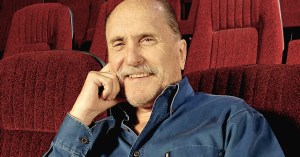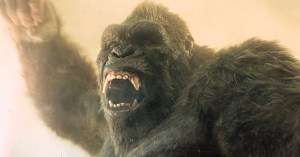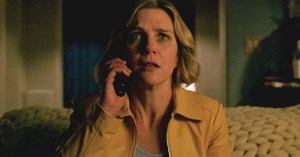Tom Hardy Promises ‘Slow Burn’ Taboo to Heat Up
“I wanted to create a bit of a chocolate box,” says star of FX's gritty historical drama
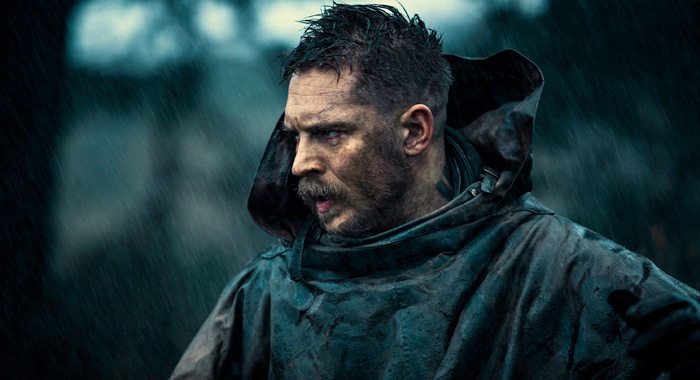
If the first episode of Taboo wowed, just wait until you hear what’s coming next, says creator and star Tom Hardy (Mad Max: Fury Road), who spoke with Rotten Tomatoes before the FX series’ panel for the Television Critics Association.
Viewers have just met James Delaney (Hardy), who returns to London in 1814 to claim his inheritance, only to find that others have legitimate claims to it since he has been off in Africa. Hardy excitedly likened Delaney to Dickensian villain Bill Sikes, and then went into greater detail about the classic literary figure mashup that inspired the character.
Hardy created Taboo with his father Chips Hardy, and Steven Knight wrote the first season for them. Knight, who also spoke to Rotten Tomatoes at TCA, told us to strap in for more surprises as Taboo continues.
“I think it’s a season that gets better as it goes along because to begin with, we establish the world,” Knight said. “Also, I think people notice that this is going to be different. Expect the unexpected is what I would say. If you think you know what’s going to happen next, you’re probably wrong.”
How does the Legion of the Damned sound? Three more tonal shifts? Tom Hardy’s box of chocolates? Here’s what Hardy had to say.
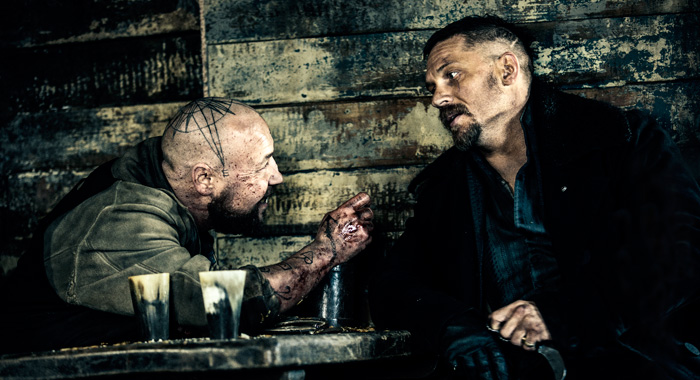
Fred Topel for Rotten Tomatoes: Where did Taboo begin for you? Was it the character of Delaney, the idea of building this family empire or just wanting to do something in the historical period?
Tom Hardy: A bit of everything really. I came home to my dad, and I’d just finished playing Bill Sikes in Oliver Twist, and I said, “Do you know what would be really good, Dad? To take Bill Sikes and play him as a hero.” He’s a villain, but if he had a noble cause, what a great hero he could be, because he’s just got loads going wrong with him.
How would you mix Bill Sikes and blend him with a Sherlock Holmes type, or someone Ralph Fiennes might play like [Chekov’s] Ivanov, a character which had more gentlemanly or higher class? The amalgamation of the two and then maybe perhaps Marlow from The Heart of Darkness and a bit of Heathcliff [from Wuthering Heights]. We could throw lots of different classical characters in there, a bit of Odysseus.
My father said, “Tom, that’s too many characters to put in one thing.” Then he went away and he wrote a treatment for it, which he set in 1860. That was when the world came of the drama and the characters and the history.
We used that to reach out to Steve Knight. He changed everything and took it to 1814, so the story changed again, but James Delaney was always constant and the world started to grow and change and grow and change again. By the time we started shooting, it was still growing and changing. New characters were coming in whilst we were shooting. So it was about the story at that point. It was about the development of the story over probably seven years.
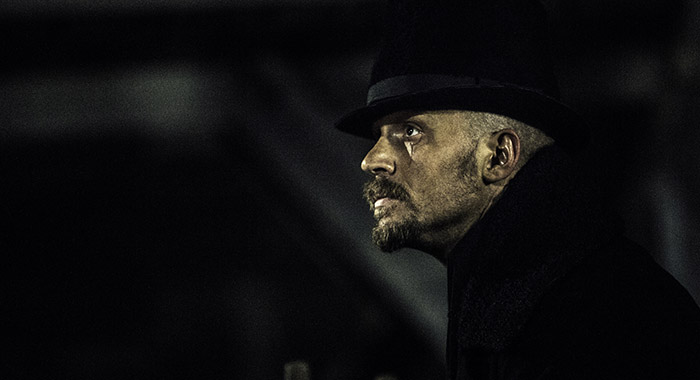
RT: Is there still any Bill Sikes or Odysseus in Delaney?
Hardy: No, not really. It’s become something else now. There’s Byron in there, a bit of Paddy Mayne and Sterling. There’s all kinds of bits of Shackleton, bits of Richard Francis Burton, the explorer. There’s all kinds of people in now, which is lovely because it’s a really nice opportunity to play a character in that world who’s an amalgamation of lots of literary characters.
RT: Do things ramp up in episode two? Does every episode escalate dramatically?
Hardy: Yes, because I wanted to create a bit of a chocolate box. You open up in a fairy tale kind of Grimm story, almost like a horror story. It starts like that and the introduction is slow. It’s a slow burn, so we wanted to offer a lot that gets tied up by subsequent episodes. It really starts to take off in four and five. In six it goes off again to another angle and then seven and eight goes off in a completely different angle. We even incorporate the Western into there, sort of Peckinpah meets Barry Lyndon, which makes sort of early English Gangs of New York territory.
It will start to open up in a very different way. So the first three are a little bit tough, but stick with it because it opens up and diversifies once the machinations of the game of chess starts to play, and we’ve introduced all the characters and get to know them. The world gets a lot wider.
This is an introduction season in many ways to a group who are known as the Legion of the Damned, who you’re not really aware of yet. They don’t really start to form until halfway through and how we start to play off America, The East India Company, and the Crown together.
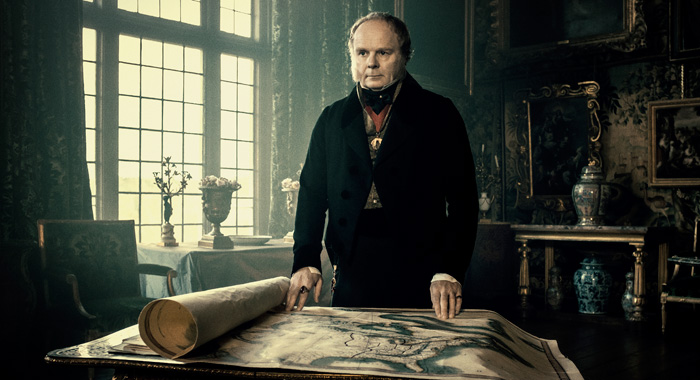
RT: You have access to wonderful projects in film and television. Is Taboo an example of something you just have to create yourself or it wouldn’t exist?
Hardy: I think probably. It was the first thing we got involved with. What was nice was, initially working with the BBC, I’ve done very, very well as an actor. I’ve always wanted to do a piece of my own. To minimize the risk in many ways, the business strategy would be to go home and say to the BBC at home, “Would it be all right to create something and bring it back home as a period drama?”
I wanted to do it with my father, Steve Knight, and [executive producer] Ridley Scott. It would make sense that that would probably be a good opportunity to create something for television at home. Just because if I were to make an independent film, it’s very hard to get financing, and then your script is only two and a half hours long or whatever it is.
I wanted to do something where I could see an achievement which was realistic, where we could tell a story which was compelling but learn how to produce at the same time. To find the right target home for a piece, I thought, “How do I minimize risk so I can get the most from the experience?”
What happened next was when Steve Knight and Ridley came on board, the BBC responded in a way which was mega supportive. Then FX came which was mega supportive. What turned out to be a small piece that Chips, my dad, and Steve Knight and I thought we’d be just a small TV series at home in England has now become something that’s traveled to FX and is everywhere. In many ways, this was my first idea of can we make something of our own? It’s actually quite a lot bigger than I thought it would. It’s sort of a humble concept.
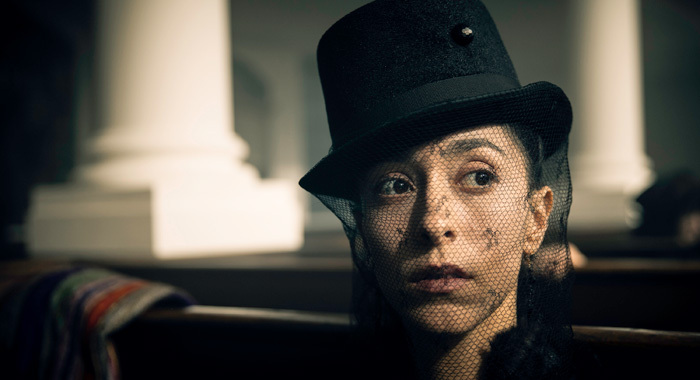
RT: “Taboo” can mean so many things. Do you get to explore them all?
Hardy: To as great an extent as possible within the time we were given. There’s a lot of subject matter and a lot of characters that are going to be introduced to continue the conversations that are raised within Taboo and the context which is social, political, and also human.
But there’s never enough time, with any project, to cover all bases and the work is never finished. I couldn’t say that there’s a nice neat bow, but the conclusion of Taboo is very satisfying for us — but I would love to go back and reshoot it all again knowing what I know now, like any of the films I’ve been in.
Taboo airs Tuesdays at 10 p.m. on FX



